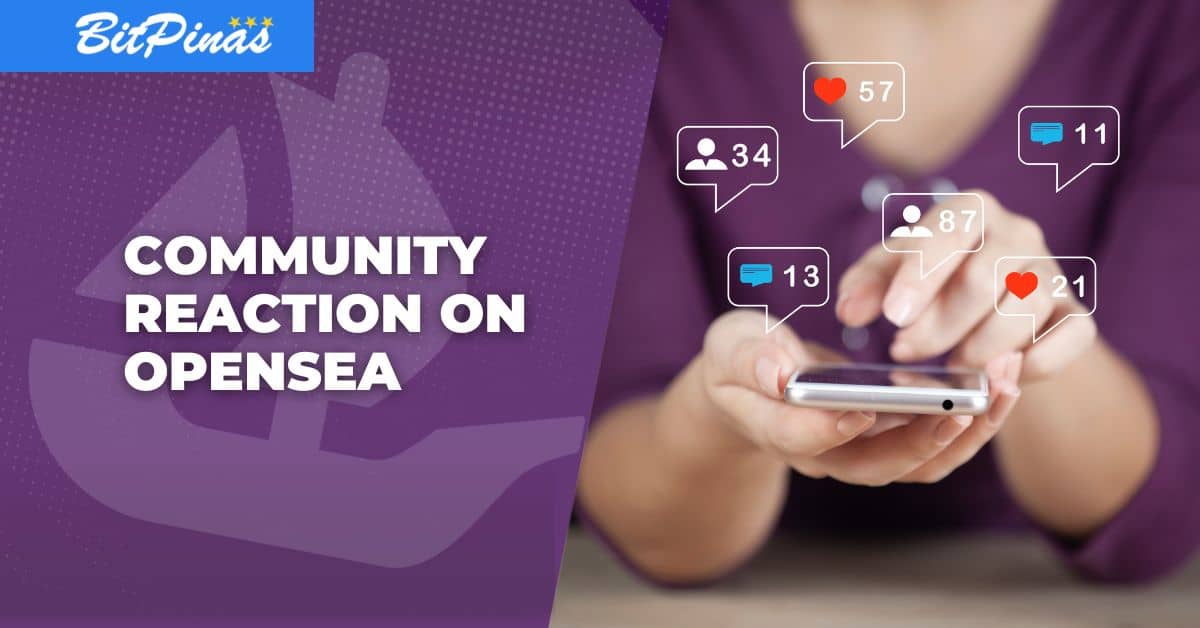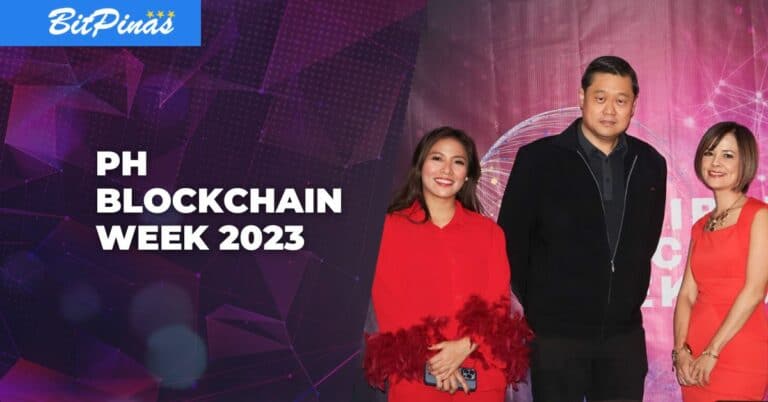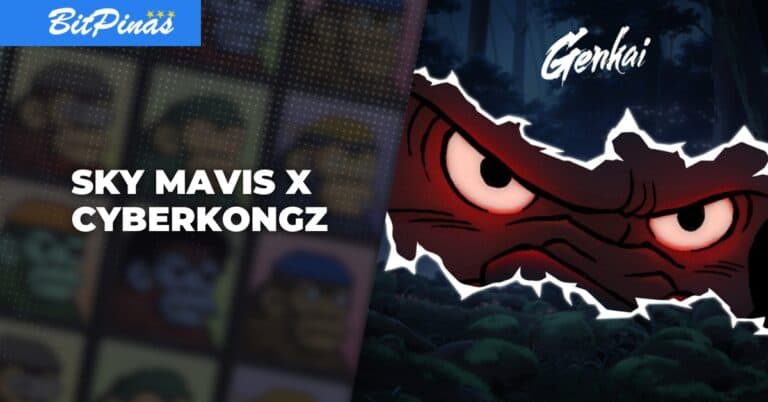OpenSea Changes Royalty Rules, Faces Backlash from the NFT Community
OpenSea, a leading NFT marketplace, has faced significant backlash after deciding to axe royalty enforcements on secondary sales.

- OpenSea, the largest NFT marketplace, discontinues enforcing creator royalty fees on secondary sales, with the Operator Filter retiring on August 31.
- Billionaire Mark Cuban tagged the move as “misguided,” while Yuga Labs plans to block trading of newer NFTs on OpenSea by February 2024.
- Meanwhile, for CryptoArt PH, NFT art is about art and tech, not greed and tech.
OpenSea, one of the non-fungible token (NFT) marketplace giants, recently made a platform adjustment by implementing a new rule that will no longer enforce creator royalty fees on secondary sales.
The move, however, was not well-received by the community and even got a backlash from both the local and international community, such as Mark Cuban and Yuga Labs.
OpenSea on Royalties: A New Direction
About a week ago, OpenSea announced that it would be transitioning to optional creator fees on its platform beginning August 31, 2023.
In a statement, the marketplace noted that the change is intended to better reflect the principles of choice and ownership that are foundational to the decentralized ecosystem.
Accordingly, the OpenSea Operator Filter will be retired, allowing unrestricted access to all marketplaces. For collections that had the OpenSea Operator Filter before this date and for existing collections on non-Ethereum blockchains, OpenSea will enforce the creator’s chosen fees on secondary sales from August 31, 2023, to February 28, 2024.
In addition, the marketplace claimed that this period will also see improvements such as allowing buyers to readily identify secondary listings with creator’s fees, and sellers will be able to conveniently choose or customize creator fee payments, simplifying the process for both parties.
“To be clear, creator fees aren’t going away—simply the ineffective, unilateral enforcement of them,” OpenSea stressed.
The Operator Filter was launched in November 2022, which allowed creators to limit secondary NFT sales to marketplaces that uphold creator royalties.
Consequently, the new policy is now expected to change the default setting for the NFT industry, which previously promised that artists would receive a cut of the sale price every time their work was resold. Under the new policy, this is no longer guaranteed.
Immediate Community Reaction to OpenSea’s Decision
Mark Cuban
One of the big names in the NFT industry that did not enjoy the marketplace’s decision on royalties was billionaire Mark Cuban, who is also an OpenSea investor.
For Cuban, the main issue was the enforcement of royalties across all NFT marketplaces, which should be addressed, but implementing an optional royalty was not the solution.
“The optional royalty approach kills future applications that go far beyond collectibles. Which is where the most money will be,” he noted.
Yuga Labs
A day after the statement release of the marketplace, Yuga Labs, the company behind top NFT project Bored Ape Yacht Club (BAYC), announced that it would block the ability to trade its newer NFTs on OpenSea by February 2024.
“For as much as NFTs have been about users truly owning their digital assets, they’ve also been about empowering creators. Yuga believes in protecting creator royalties so creators are properly compensated for their work,” Yuga Labs CEO Daniel Alegre wrote.
This move was met with praise from its BAYC community, as well as from content creators and NFT project founders such as EllioTrades and Alex Becker. The CEO and co-founder of the Forgotten Runes Wizards Cult NFT project, dotta, also expressed support.
However, it must be noted that the company stated that it would discontinue OpenSea support for “all upgradable contracts and any new collections.“ This implies that older and more popular collections will likely continue to be traded on OpenSea, lessening the impact of this protest.
Crypto Art PH and Local Insights
Since OpenSea’s announcement gained the attention of the community, smaller marketplaces like Rarible have taken the opportunity to highlight their unwavering commitment to creator royalties.
Rarible’s campaign was supported by CryptoArt Philippines, one of the largest NFT communities in the country, hinting that NFT art is about “ART and Tech, not greed and tech!”
“Long-term growth? Honor the royalties. These are one of the major developments I share when I meet and talk to the public about web3,” Jopet Arias, who is also the founder of CryptoArt PH, emphasized. “If we don’t do that as a community and be driven by greed, I guess WAGMI is just a word; it is made of wind.”
Meanwhile, John Crain, the co-founder and CEO of NFT marketplace SuperRare, highlighted that royalties on secondary sales are fundamental to the NFT art industry, “the core to artist sovereignty, and the future of this movement.”
“It’s unfortunate to see a trend going back on this as an industry,” he added.
Moreover, Gemini’s NFT platform, Nifty Gateway, also expressed its opinion noting that “NFT royalties are one of the greatest pro-creator advancements of this century, and we are proud to enforce royalties on our marketplace.”
While for Jana Stern, the host of the weekly X Spaces Metaverse & Metaphysics, OpenSea’s decision is just exploiting artists and making it harder for creatives to find success. She noted that this move is like in web2.
“If it (OpenSea) doesn’t align with the incentives of creators, creators should move their business to places that do,” Betty, CEO and Founder of the NFT project @deadfellaz, echoed.
This article is published on BitPinas: OpenSea Changes Royalty Rules, Faces Backlash from the NFT Community
Disclaimer: BitPinas articles and its external content are not financial advice. The team serves to deliver independent, unbiased news to provide information for Philippine-crypto and beyond.




![Lance Pormarejo, Gameworks.io [PH 2019 Crypto & Blockchain Year in Review] 6 Lance Pormarejo, Gameworks.io [PH 2019 Crypto & Blockchain Year in Review]](https://bitpinas.com/wp-content/uploads/2019/12/2019-Blockchain-and-Crypto-Philippines-13-3-768x402.png)